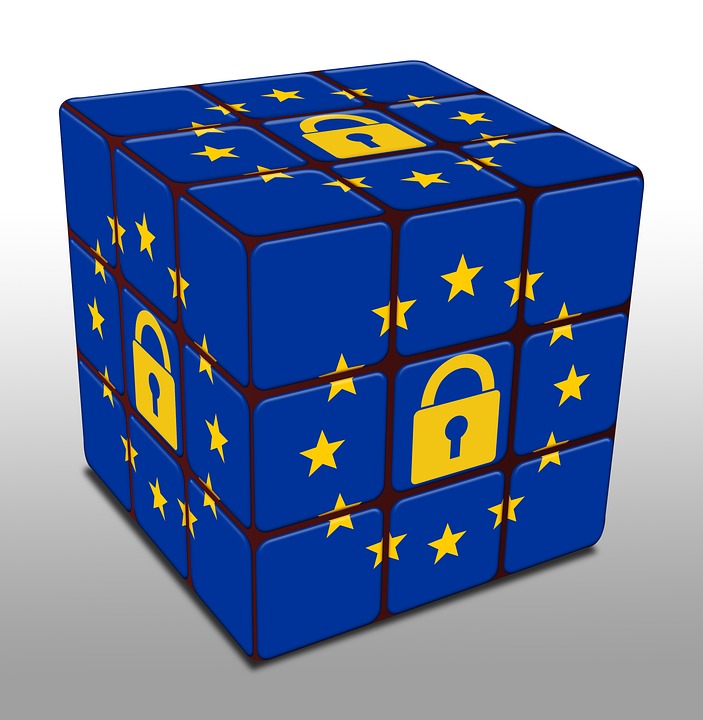Six organizations, led by La Quadrature du Net, are suing the EU regulation on terrorist content


Picture: Pixabay / CC0
A coalition of six organizations – La Quadrature du Net (LQDN), Access Now, Article 19, the European Center for Not-for–Profit Law (ECNL), European Digital Rights (EDRi) and Wikimedia France – announces that it has filed an appeal on November 8 (PDF) “before the highest French administrative court, the Council of State, against the French decree adapting the European regulation relating to the fight against the dissemination of terrorist content online (also known as TERREG)”.
Risk of excess and abuse
They ask the Council of State to refer a question to the Court of Justice of the European Union (CJEU) for a preliminary ruling on the validity of the TERREG with regard to fundamental rights protected by EU law. This regulation allows the police forces of an EU country to order a website, a social network or any online service provider hosting user–created content to block, within one hour, any content believed to be of a terrorist nature – and this in all EU Member States. These service providers may also be forced to implement “specific measures” to prevent the publication of terrorist content.
These “specific measures” – the nature of which remains at the discretion of the service providers – may include, for example, automated filtering devices, in order to analyze all content before publication. These automated systems are unable to take into account the context of the publication and are notoriously predisposed to make mistakes, resulting in the censorship of protected content such as the work of journalists, satire, art or content documenting human rights violations. In addition, the obligation to adopt “specific measures” may violate the prohibition on imposing a general surveillance obligation under the Digital Services Act (DSA).»
For the six organizations, “the risk of excess and abuse by law enforcement agencies in terms of content removal has been widely described, and will inevitably increase with this regulation. This legislation also strengthens the hegemony of the largest online platforms, because only a few platforms are currently able to comply with the obligations provided for by the TERREG.»
For Rémy Gerbet, executive director of Wikimedia France (an association that promotes and supports Wikipedia and related projects), “the European regulation relating to the fight against the dissemination of terrorist content online does not take into account the specificities related to projects supported by Wikimedia France, such as Wikipedia. It obliges us to remove content deemed terrorist within 24 hours without going through a judge under penalty of a fine in case of non-removal. Wikimedia France joins the coalition because this implementing decree threatens freedom of expression and access to information on the Internet.»
“The question of the moderation of online content is serious and the answer cannot be technosolutionist police censorship, simplistic but dangerous,” comments Bastien Le Querrec, lawyer at La Quadrature du Net – the NGO is the leader of the coalition.
The defense of the case by the French government is expected in the coming months. The decision of the Council of State is not expected until next year, says the collective press release.
LQDN: a very wide list of possible targeted content
In May 2021, after the adoption of the European regulation by the MEPs, La Quadrature had published this assessment, noting in the main provisions of the text:
“The withdrawal can therefore be ordered by an administration, without control of a judge. In France, this power will surely be given to the OCLCTIC (which can already order a withdrawal within 24 hours).
* The withdrawal order can come from the authority of any Member State of the European Union to any service provider present in the European Union.
• The text does not itself define what terrorist content is, but refers to a 2017 directive and its Article 3: the list is very wide and goes as far as concerning incentives to “cause a serious disruption” of a computer system or to “cause massive destruction […] to a public place or private property”, all with a view to “seriously destabilizing” the political or economic structure of a country — hence the risk of political censorship that we denounced here in 2018.
* The online services concerned are any hosting service provider that offers a service in the European Union by disseminating information to the public (social network, video platform, blog …), regardless of its size or importance.»
Risk of inconsistency between States
Also in May 2021 after the adoption of this regulation, the Free Knowledge Advocacy Group EU, the Wikimedia movement’s working group on EU policy and legislation, published an article on the TERREG. He mentions:
“The final text is still too vague and violates fundamental rights, in particular those of expressing political opinions and access to information. The regulation includes exceptions for journalists, for artistic and educational purposes, but these depend on the interpretation of national governments on the one hand, and, on the other hand, on national legislation determining what journalism or artistic expression is. This means that the regulation could be applied differently and inconsistently within the different EU Member States. The legislation also requires platforms to respond to an injunction to remove content within one hour.
The authorities have no right to impose download filters – but hosting service providers can still use them voluntarily. Faced with very short deadlines and excessive fines for non-compliance, many platforms prefer to avoid receiving injunctions, and the temptation to quickly comply with the law by deploying content filters – which do not take into account the context and remove false positives – may be too great to resist.»
Read also
Librarians, digital freedoms and laws: December 31, time of donations and balance sheets – December 30, 2021
Terrorist content: France and Germany demand faster censorship – June 8, 2018








